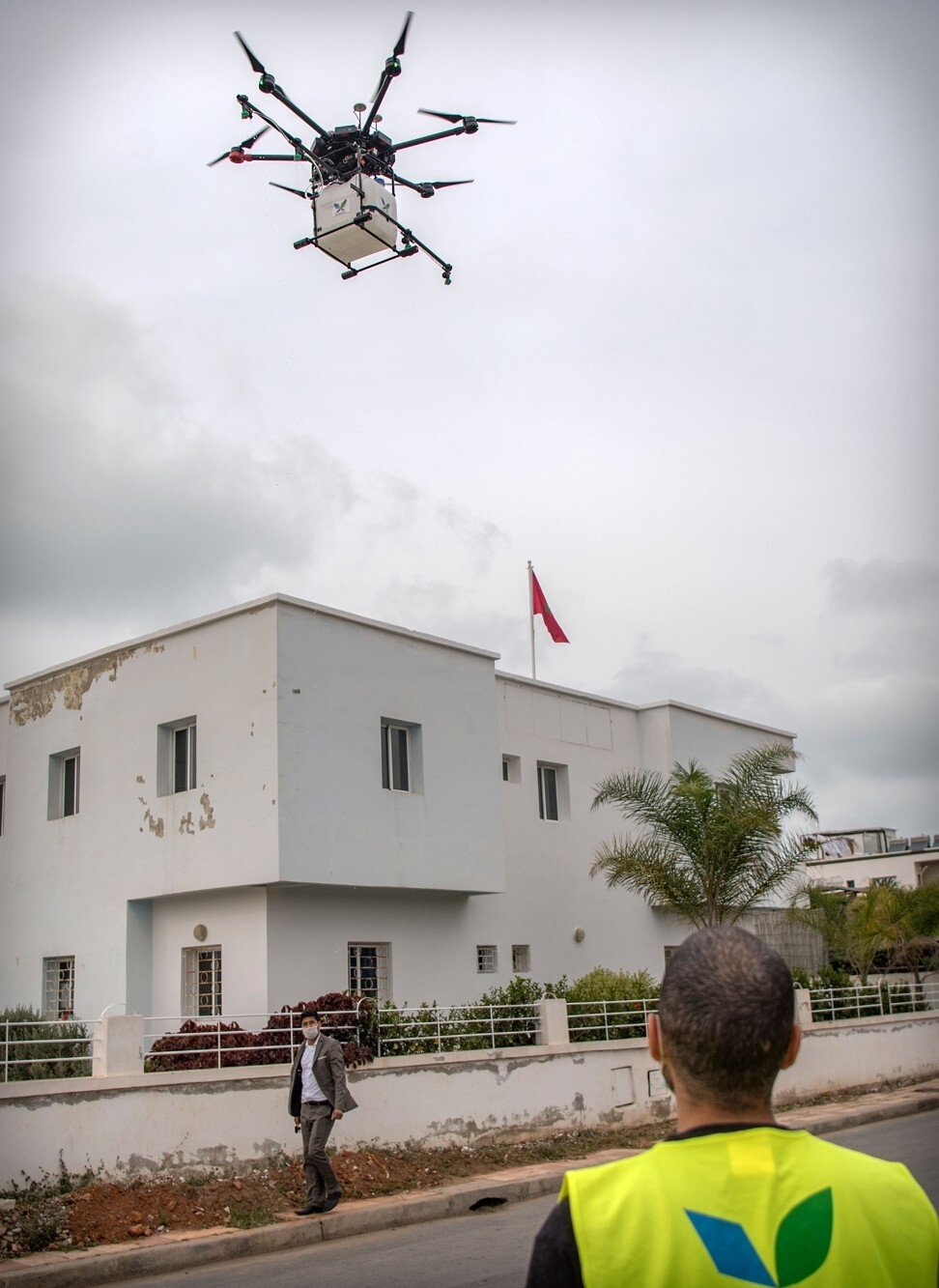The deployment of Chinese-made drones in the Kingdom of Morocco has expanded during the coronavirus crisis, as these devices are used for aerial surveillance, public service announcements and disinfecting public spaces.
Morocco has rapidly expanded its fleet of DJI drones in battling the coronavirus pandemic, deploying them for aerial surveillance, public service announcements and sanitisation.
Companies in Morocco have been using drones for years, according to Qamous. He said the nation “is among the most advanced countries in Africa” for unmanned flight, with a dedicated industrial base, researchers and qualified pilots.
But restrictive regulations have long limited civilian drones to specific applications such as filming, agriculture, monitoring solar panels and mapping.

An employee of Moroccan start-up Farasha, in the right foreground, remotely pilots a DJI drone equipped with disinfectant liquid at a street in the city of Harhoura, near the capital Rabat, on April 23. Photo: Agence France-Presse
In recent weeks, authorities have employed DJI drones to issue warnings, identify suspicious movement in the streets, and disperse illegal rooftop and balcony gatherings.
Last week, local authorities in Temara, a town near the capital Rabat, launched a high-precision aerial surveillance system developed by local company Beti3D, which previously specialised in aerial mapping.
“Drones have quickly emerged as a vital technology for public safety agencies during this crisis, as they can safely monitor public spaces,” DJI, the world’s biggest drone maker, said on its website.
“There is real demand,” said Abderrahmane Krioual, the head of Farasha, a start-up that has raised funds to produce drones for thermal surveillance and aerial disinfectant spraying.
Several projects are under way across the country, located in the Maghreb region of North Africa, ahead of the widespread deployment of various models of drones, according to Mohsine Bouya, the university’s director of technology development and transfer.
Teams are also developing tracking applications, but “we’ll have to wait for a change to the law” before launching them, Bouya said.
Moroccan authorities declined to comment on the use of drones or the numbers deployed since the start of the public health emergency in mid-March.
Unlike in some countries, the use of surveillance drones has not sparked public debate in Morocco, where the kingdom’s authoritarian response to the pandemic is widely supported.
Morocco closed its borders early and tasked law enforcement with imposing strict confinement measures on the population.
Those included movement restrictions and the compulsory wearing of masks, with a night time curfew since the start of the Muslim holy month of Ramadan – enforced by a heavy police presence.
People found guilty of violating lockdown measures face one to three months in prison, a fine equivalent to US$125, or both.
Police have arrested 85,000 people for breaching lockdown measures between March 15 and April 30, bringing 50,000 prosecutions, according to authorities.
They said the measures have limited transmission of the virus, with 5,053 Covid-19 cases reported including 179 deaths and 1,653 recoveries since the crisis began.
But the kingdom’s high number of arrests has drawn criticism from Georgette Gagnon, director of field operations at the United Nations’ Human Rights Office.
Last week, she listed Morocco among countries where repressive coronavirus measures have created a “toxic lockdown culture”.
Morocco disputed this, saying its measures were “in line with legal frameworks respecting human rights”.







